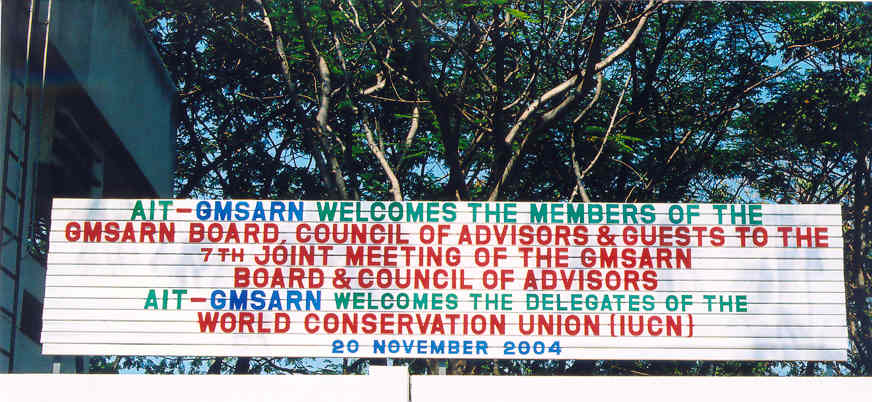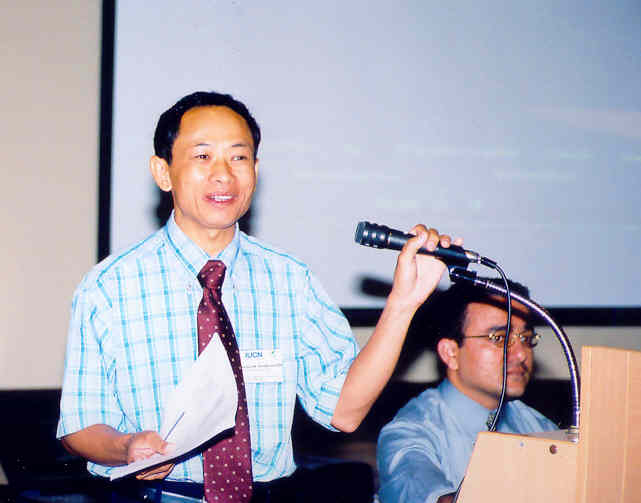
AIT hosts GMSARN - WCLN Professional Exchange Program
The Greater Mekong Subregion Academic and Research Network (GMSARN) is an alliance of eleven top ranking academic and research institutions in the six Mekong Sub-region countries, namely, Cambodia, Laos, Myanmar, Thailand, Vietnam, and the Yunnan Province of China. GMSARN undertakes activities in the areas of human resources development, joint research with emphasis on complementary linkages between technological and socio-economic development issues. The GMSARN also disseminates information and intellectual assets generated in the region. The Asian Institute of Technology (AIT) is one of the founding members of the GMSARN and is the host of the GMSARN Secretariat.
The World Conservation Learning Network (WCLN) of the World Conservation Union (IUCN), is a global partnership between universities and other higher education institutions and the conservation, environment and development community. Their broad aim is to build the capacity of professionals to meet conservation and sustainable development goals.
In the afternoon of 20 November 2004, the AIT hosted a Professional Exchange Program between GMSARN and WCLN.

The program started off with the AIT President, Prof. Jean-Louis Armand (above), welcoming all delegates from both networks, followed by a brief presentation of the GMSARN by Professor Mario Tabucanon, former Director of GMSARN and Provost of AIT.
This was followed by a digital presentation of a case study research on Environmental Management Measures for Solid Waste Management in Vientiane, Laos PDR. Mr. Bounsouk Souksavath (below left) of the National University of Laos and Mr. Bhoj Raj Khanal (below right) from AIT made the presentation.

The 2nd half of the exchange saw WCLN partner Dr. Richard Taylor from the Earth University introducing SEMCIT - Sustainability, Education, and the Management of Change in the Tropics. His presentation highlighted SEMCIT's role in higher education for sustainable agriculture in developing countries. This was followed by a presentation by Mr. Jack Byrne from the Foundation for Our Future, on FLOW, an E-learning tool being developed by IUCN for the implementation of environmental flows in the river basins of the world.

Mr Richard Taylor (above) and Mr Jack Byrne (below right) presenting their highlights

The professional exchange programme was capped with a tour and planting ceremony at the Queen Sirikit Arboretum Garden of AIT. GMSARN and WLCN delegates found themselves in the medicinal garden zone, happily planting herbs, while the arboretum management enthusiastically explained the nature and medicinal benefits of the various plants.


